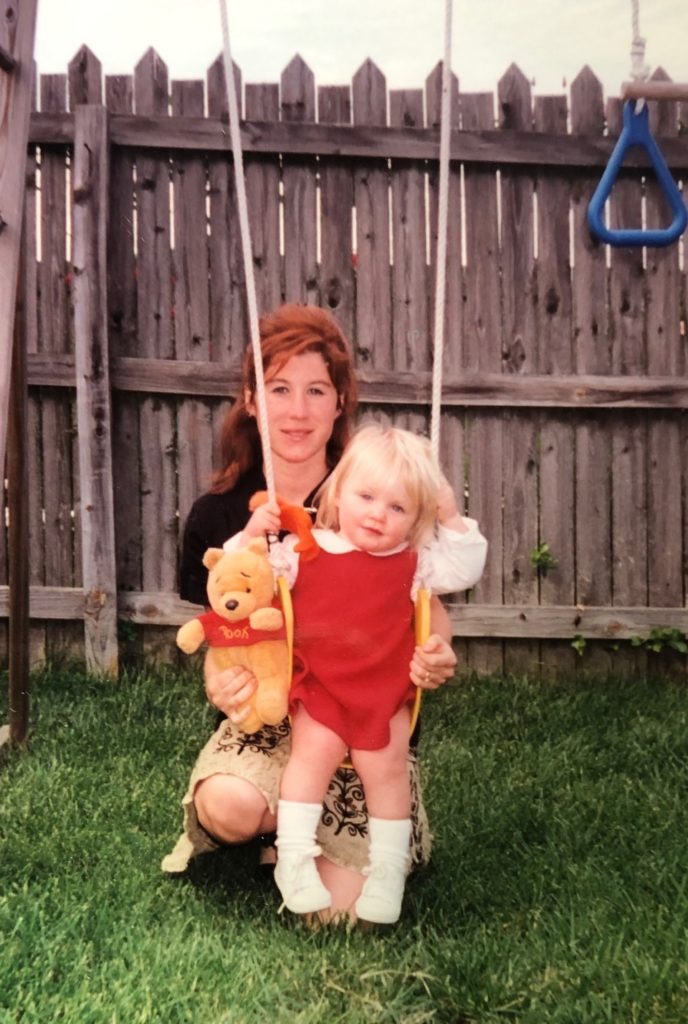Trailing spouses are forced to encounter change more than the average human, often without much support. In my 26 years as a Navy wife, my family has experienced 10 house moves, including five different states and one overseas tour. Throughout this adventure, I’ve continued prioritizing my professional advancement as a creative marketing professional. In the past, pursuing your own career dreams hasn’t been expected of military wives — but times are changing and I hope sharing my story publicly for the first time inspires others to never give up on their dreams.
Continued from Part 1 of Erica’s story…
After juggling four eventful years as a trailing spouse, military wife, new mom and creative marketing professional in the emerging digital landscape, I was excited to see what life would bring next for my marriage, my career, my 4-year-old daughter and 6-month-old son. At the same time, however, I was also seeking more stability.
Our family decisions shifted to a more thoughtful, long-term strategy. Which military moves would be best for advancing my husband’s U.S. Navy career (now that he had committed to at least six more years) while also benefiting (or at least not damaging) my career? And what about schools, activities, and childcare options for the kids?
With my husband’s latest promotion and pay raise, we could buy a condo with enough room for an office, so that I could continue working from home for my web start-up firm despite our move from Connecticut back to Virginia. This gave me a greater sense of continuity, even as my husband left for six months on the USS Wasp in the Mediterranean. For the first time during one of his deployments, I had a stable job and established friendships in the region.
All was well… until the phone rang at 3:30 p.m. one day. After five years with my company, I was suddenly jobless — with no benefits or severance pay. To add even more of a challenge, when my husband got back, he was immediately deployed again, in response to the bombing of the USS Cole.
After getting over my shock, anger, and grief at these dual setbacks, I swore that my loyalty going forward would be to myself and family first, rather than to a specific employer. This was a hard lesson to absorb at age 25 with two young kids — but one that I’m glad to have learned early in my career. As a result, I grew a thicker skin and developed a greater sense of appreciation for the opportunities that followed.
Knocked Down? Get Back Up Again
My job search was limited to my geographic area and my interviewing skills were rusty, but fortunately, my creative and digital skills were highly marketable. I jumped to another web design startup that had government contract work and helped them bring in some commercial business. This was my first director role, overseeing a talented team of five web and interactive designers.

Life became good again, if not better. I was in an actual office again — something I had been missing, although working from home does have certain childcare advantages — developing new business ventures, feeling creative and cool on the leading edge of the dot-com boom. Marketing was a whole new world compared to web and product development. The company was bought out by a large accounting firm within a year, but this time, I was far more prepared and was able to quickly move on to an award-winning firm with an office in downtown Norfolk. My growing income also meant we could afford to move closer to my office — shortening my commute — into a house with a backyard and more space for the kids. Everyone was happier.
For three years, I worked to build my marketing muscle and learned more about digital advertising and commercial e-commerce. It was exciting to work with national brands and build their first website presence, managing remote teams of many designers and programmers. The business model was scalable and business was booming. The intense ad agency culture (as you may have noticed on “Mad Men”) took some getting used to, but I succeeded in managing profitable solutions for big clients.
But when my husband was deployed again for six months, on the USS Bataan, things got sketchy.
Don’t Expect Help — But Do Ask for It
First, on Halloween, I was running late and got a reckless speeding ticket trying to get my kids home and in their costumes for the festivities. A few weeks later, in pouring rain, I got a flat tire less than a mile away from the daycare and changed it myself on the side of the road. (Somehow, I still made it for pickup without late charges.)
These stressful events taught me to be prepared going forward — including backup plans — and how to keep my cool under in very stressful situations. They also reminded me about how important it is to ask for help, even though I had always prided myself on being self-reliant, and to work on building and nurturing relationships with every relocation. In a twist of good luck, one of my former colleagues had a neighbor who was a lawyer who unexpectedly offered to go to court with me to get the speeding ticket knocked down to only a fine, without any suspension of my license.
During my 26 years and 10 relocations as a Navy wife, if not for the new friends and generous acquaintances made along the way, I’m not sure I could have succeeded in cobbling together a successful career, being a good mother and the supportive spouse my husband needed and deserved when he came home from deployments. I’ll never take that for granted.
On the Road Again…
The standard Navy rotation is every three years, so it was soon time to move to the next duty station. With two kids, we aimed to stay on the East Coast in close proximity to our extended families, and we found ourselves in a beautiful town outside of Portsmouth, N.H. (This relocation was pretty good in terms of our destination, timing and resources — a 12 out of 15 on the Gupte Scale.) We quickly connected with other Navy families this time, and I was invited to some of the social activities on the Groton Naval Base. I have some fond memories of a game called “Bunco”, a social game using dice, and I became lifelong friends with other military wives with kids who gave me wonderful advice and support.
Unbeknownst to my clients, I continued working from home — participating in conference calls and using fancy new technology to remote into my old computer to grab files. It was fun to spook people at the Virginia office by putting funny pictures on the screen! But within the first six months, I realized that I missed adult and office interaction, and working from home was only getting harder as my kids demanded more of my love and attention. My husband and I also decided to have a third child.
Reset to Recharge
For all three of my pregnancies, I didn’t have any maternity leave benefits and worked almost straight through my deliveries. I was mentally and physically exhausted. After a decade spent working nonstop in web design, and finding out that we were likely to be stationed overseas with my husband’s next promotion, it was time to reset and figure out a more sustainable career plan than the startup world had offered so far.
I decided to enroll at the University of New Hampshire for a master’s degree in art education. My goal? Resolve the tension between working for money vs. working for passion.

Opening My Mind
Learning how to teach K-12 students was interesting and really helped me overcome any fears of public speaking and I learned how to communicate with kids with a variety of learning styles. Even though my subject area was art, it demanded a lot of writing (for lesson plans), which helped me become a stronger writer.
My thesis, “To Doodle or Not to Doodle,” has turned out to be something I’ve used throughout my parenting and career. I basically had a small group of kids track their thoughts in class with a sketchbook over a year’s time. I am a doodler and obsessive multitasker and always felt this could be perceived as being distracted or not listening. In reality, I felt doodling helped me focus and burn excess energy while listening. (I learned 10 years later, through personality tests, that I am a kinesthetic learner.) My hypothesis was that other students might be wired the same, but if teachers understood this better, they could support and even encourage artistic behavior in class. By analyzing the observation and testing data collected, it was clear that doodling helped to reduce overall stress and increase concentration for some students. After years of feeling I wasn’t perceived as smart because of my art degree, it was really validating to share these results. It also opened my mind to communicating to different people in different ways, which was essential in my ongoing relocations and future roles in the nonprofit sector.
I spent one year as an intern, splitting time as an art teacher at a K-8 school in New Hampshire, then taught digital videography and photography at a high school in Maine. The U.S. Navy moved us again before I could have my own classroom in a public school, but earning my teaching certificate and master’s degree was still a worthwhile experience that reinvigorated my passion for creativity and design. I also appreciated the time to bond with my newborn daughter and older children, especially during my husband’s deployments.
It was sad leaving New Hampshire; we had so many good family memories, new friends, a lake view and one of the most peaceful years of my marriage. In contrast, our next move — overseas, for the first time — turned out not to be anything but peaceful…
Continue to Part 3 of Erica’s story.

